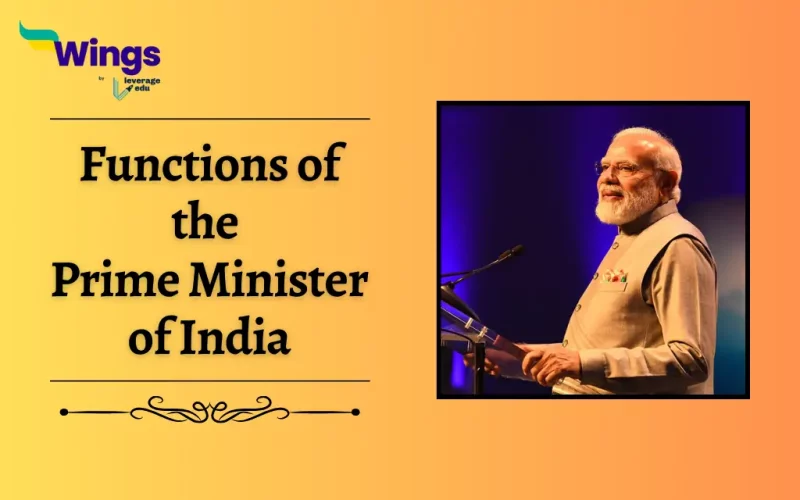A Prime Minister (PM) has an important role in a parliamentary democracy as they are the representative of our nation. To understand the significance of a PM, we must know about the Functions of the Prime Minister in a Parliamentary Democracy. Some of the primary roles of this Constitutional authority include advisor to the President, the voice of the nation, and the link between the Council of Ministers and the head of the state. Furthermore, as head of the government, a PM is responsible for all the misgovernance and unlawful activities in the nation. Moreover, the Prime Minister in a parliamentary democracy is accountable to the citizens. Owing to this, citizens must constantly question their PM regarding draconian policies and economic turmoil.
Also Read: What is Federalism?
Functions of the Prime Minister
The Prime Minister in a democratic country is the leader of our nation. Moreover, owing to this position, they have to perform numerous functions. Here are some of the primary functions of the PM in India, a parliamentary democracy:
- She/they/he serves as the head of the government.
- She/they/he has to assign portfolios/ministries/departments to Ministers of her/their/his cabinet.
- She/they/he is the official representative of the nation on international and regional levels. She/they/he attends meetings, seminars, and events as the ambassador of the democratic republic.
- She/they/he is the glue and information channel between the Cabinet and President.
- The PM communicates all decisions of the Cabinet to the President.
- The decisions can be about legislation or administration of the Parliament.
- She/they/he heads various government organisations, departments, and ministries.
- In India, the PM heads the NITI Aayog; Nuclear Command Authority; Ministry of Personnel, Public Grievances, and Pensions; Department of Space; and Department of Atomic Energy.
- She/they/he is the chief advisor to the President of the democratic country.
Also Read: No-confidence Motion: Definition, Procedure, Latest News
Who is Eligible to Become a Prime Minister of India?
According to Article 75 of the Constitution of India, the President of India appoints the PM of the country within the elected majority. The chosen person must meet the following criteria to become the head of the Government of India:
- She/they/he must be a citizen of India
- She/they/he must be a member of the Lok Sabha or Rajya Sabha
- She/they/he should have completed 25 years of age if she/they/he has become a Lok Sabha member. Or, she/they/he must be 30 years of age or older if he is a Rajya Sabha member.
Also Read: How is the President of India Elected?
Relationship between PM and President of India
As one of the primary Functions of the Prime Minister is to discuss legislation/s with the President, the Constitution of India has defined their relationship under Articles 74, 75 and 78.
The table below defines the relationship between the head of the government and the head of the State as mentioned in these articles.
| Articles of Constitution of India | Relationship between PM & President |
| Article 74 | The PM advises the President on several issues. |
| Article 75 | The President appoints the PM and Cabinet Ministers on the advice of the PM; Cabinet Ministers can hold their office at the pleasure of the President |
| Article 78 | The PM conveys all the decisions taken by the council of ministers to the President. Similarly, the President can present matters for the Council of Ministers to discuss. |
Also Read: Who Wrote the Constitution of India?
Related Blogs
Lastly, we hope you liked our blog and gained an understanding of the Functions of the Prime Minister. Moreover, you may even read more blogs and empower yourself with knowledge regarding Civics and Polity!
 One app for all your study abroad needs
One app for all your study abroad needs













